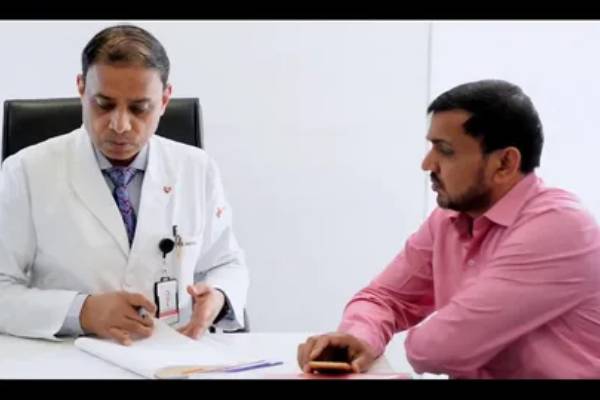A minimally invasive approach, robotic kidney cancer surgery has transformed kidney cancer treatment by itself. This operation provides a speedier recovery period for patients, less trauma, and more degree of accuracy by means of modern robotic technologies. But why should you think about seeing a robotic kidney cancer surgery specialist, and what is the procedure involved? These factors will be discussed in this paper to give patients looking for best results a thorough picture.
1. Why Choose a Robotic Kidney Cancer Surgery Specialist?
The success of robotic kidney cancer surgery largely depends on the expertise of the specialist. Choosing a qualified and experienced robotic surgeon can greatly impact the outcome of the procedure.
Key Reasons to Consult a Specialist:
- Advanced Expertise: Robotic kidney surgery specialists possess specialized training in both urologic oncology and robotic surgical techniques.
- Precision and Accuracy: Specialists use robotic systems that enable highly precise movements, minimizing damage to healthy tissue.
- Patient-Centric Approach: A specialist is equipped to tailor the surgical approach based on the tumor’s size, location, and complexity.
2. Benefits of Robotic Kidney Cancer Surgery
Robotic surgery is increasingly becoming the preferred option for treating kidney cancer. Here’s why:
- Minimally Invasive Approach: Smaller incisions reduce the risk of complications and minimize visible scarring.
- Enhanced Precision: Robotic arms can operate with more precision than the human hand, providing better tumor control.
- Faster Recovery Time: Patients typically experience less pain and faster recovery compared to traditional open surgeries.
- Reduced Blood Loss: The surgical technique allows for precise control, significantly reducing blood loss during the procedure.
- Shorter Hospital Stay: Most patients are discharged within a few days, allowing them to resume normal activities sooner.
3. How is Robotic Kidney Cancer Surgery Performed?
Robotic kidney cancer surgery is conducted using a system known as the da Vinci® Surgical System. This system comprises several key components that work together to deliver optimal surgical outcomes.
Step-by-Step Procedure:
- Preoperative Preparation: The patient is positioned, and small incisions are made to insert the robotic arms.
- Surgeon Control: The surgeon sits at a console, controlling the robotic instruments with great precision.
- Tumor Removal: Using robotic arms, the surgeon carefully dissects and removes the cancerous tissue.
- Reconstruction: If part of the kidney is preserved, the surgeon reconstructs the remaining tissue.
- Closure: The incisions are closed, and the patient is transferred to recovery.
4. Who is a Candidate for Robotic Kidney Cancer Surgery?
Not all kidney cancer patients are ideal candidates for robotic surgery. Here are the main considerations to determine eligibility:
- Tumor Size and Location: Small to medium-sized tumors located in accessible parts of the kidney are the best candidates.
- Overall Health Status: Patients should be healthy enough to undergo surgery.
- Previous Abdominal Surgeries: Prior surgeries may influence the feasibility of a robotic approach.
- Patient Preference: Those looking for a minimally invasive option may prefer robotic surgery over traditional methods.
5. What to Expect from a Robotic Kidney Cancer Surgery Specialist Consultation?
During your initial consultation, the specialist will review your medical history and discuss your treatment options. Here’s what you can expect:
- Detailed Evaluation: A comprehensive evaluation using imaging tests like CT scans and MRIs to assess the tumor.
- Personalized Treatment Plan: Based on the tumor’s characteristics, the specialist will outline the best surgical approach.
- Risks and Benefits Discussion: Understanding the potential risks and benefits is crucial to making an informed decision.
- Support and Guidance: Specialists provide support throughout the process, from preparation to recovery.
6. Post-Surgery Recovery: Tips for a Speedy Recovery
After undergoing robotic kidney cancer surgery, following post-operative guidelines is essential for a smooth recovery.
Tips for Post-Surgery Recovery:
- Follow Medication Guidelines: Take prescribed medications to manage pain and prevent infection.
- Engage in Light Activity: Gentle movements and short walks are encouraged to promote circulation.
- Stay Hydrated: Drinking plenty of water helps the kidney function optimally.
- Monitor for Complications: Report any unusual symptoms like fever, excessive pain, or signs of infection to your doctor immediately.
- Adhere to Follow-Up Appointments: Regular check-ups are crucial to monitor your recovery and detect any recurrence early.
7. Why Experience Matters: Choosing the Best Robotic Kidney Cancer Surgery Specialist
Selecting the right specialist is key to achieving the best possible outcome. Here’s what to look for:
- Board Certification and Training: Verify that the specialist has board certification in urology and extensive robotic surgery training.
- Experience with Kidney Cancer Cases: Surgeons with a high volume of successful robotic kidney surgeries tend to have better outcomes.
- Positive Patient Reviews: Patient testimonials and reviews provide insight into the specialist’s expertise and bedside manner.
- Hospital Affiliation: Surgeons affiliated with reputable hospitals often have access to the latest technology and multidisciplinary care teams.
8. Potential Risks and Complications
While robotic kidney cancer surgery is generally safe, it’s important to be aware of potential risks:
- Infection: Though rare, infections can occur at the surgical site.
- Bleeding: Minimal blood loss is expected, but severe bleeding is a potential risk.
- Damage to Nearby Organs: Though uncommon, the precision of robotic tools significantly reduces this risk.
Conclusion: Partnering with a Specialist for Optimal Care
Though the less invasive option with great results is robotic kidney cancer surgery, the surgeon’s experience is absolutely vital. Selecting a robotic kidney cancer surgery specialist allows patients to receive the best degree of treatment, cutting-edge technology, and a customised cancer treatment plan.
See a robotic kidney cancer surgery specialist if you or a loved one have a kidney cancer diagnosis to start down the path of a good recovery and long-term health.







Leave a comment
Your email address will not be published. Required fields are marked *